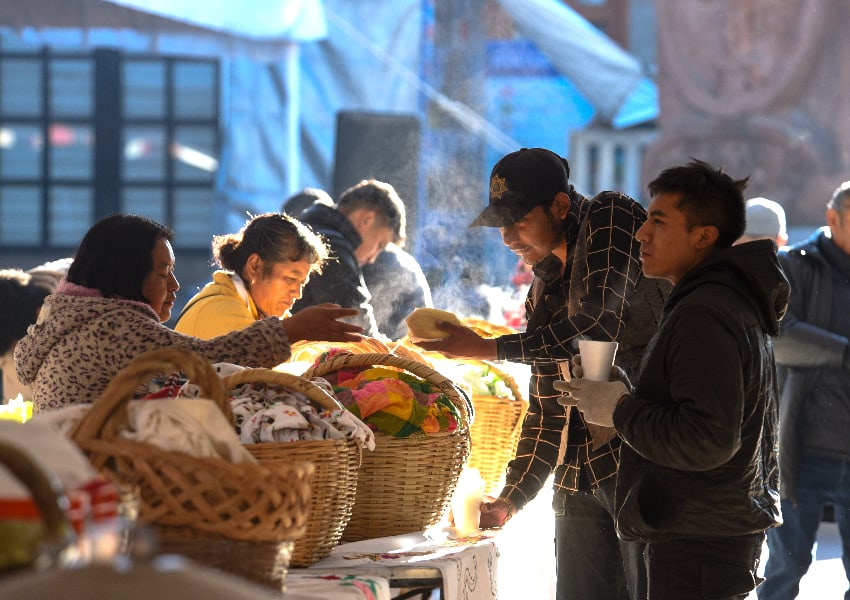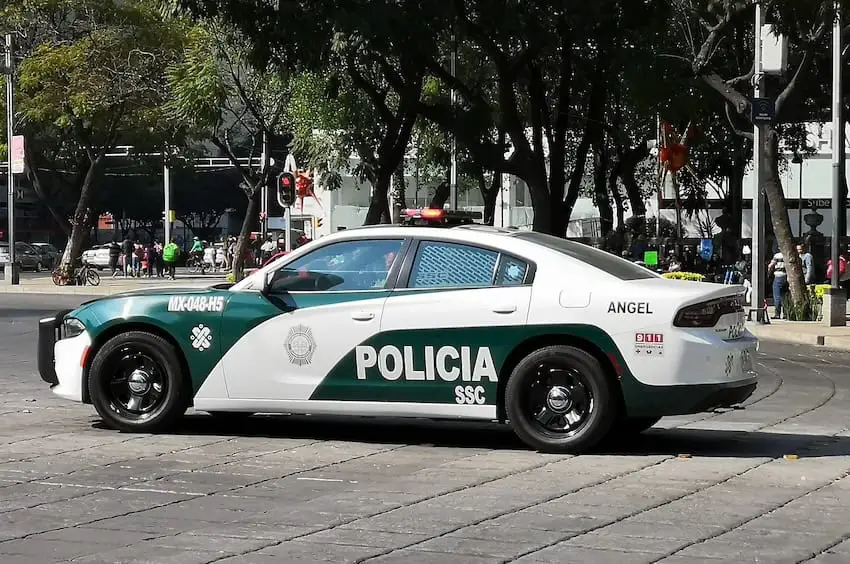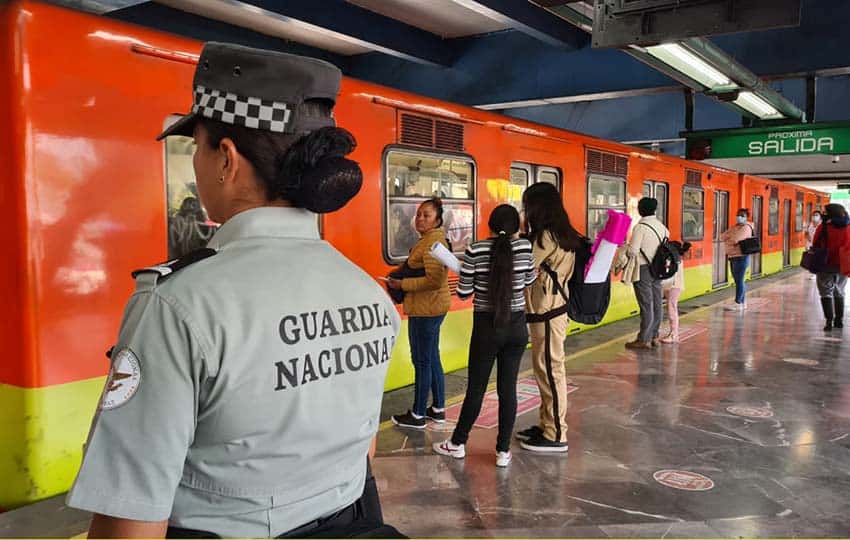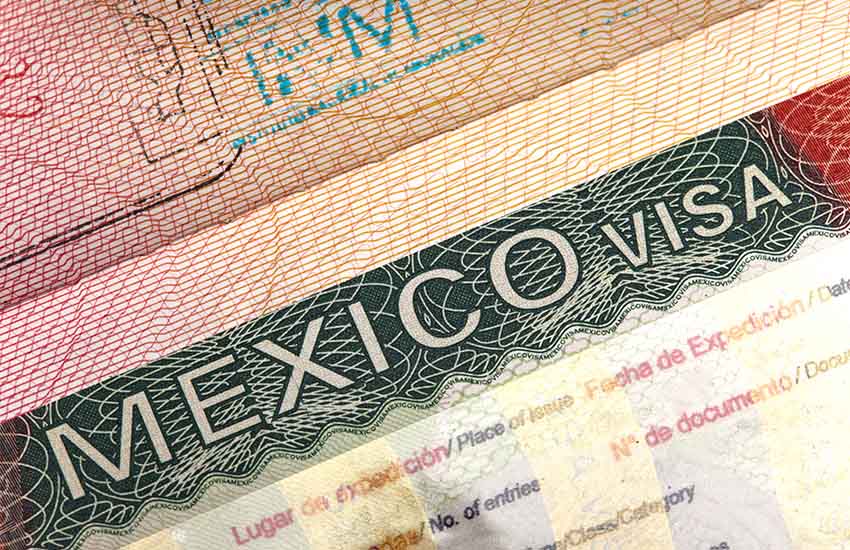What do you think the most frequently asked questions about living in Mexico City are? I have been running food and history tours in the capital for about eight years now. Giving tours evolved organically from my writing about food and travel in the city and what used to be a one-off occasion has now become a business. We all think of ourselves as special butterflies, but in my years as a tour guide I’ve learned that human beings, or at least the ones who hire me — mostly U.S. citizens — are more alike than we think.
So I tend to get the same questions over and over and over again and if you are headed to Mexico City and wondering the same things, here are a few answers for you in advance.
What about the water?

This is by far the most constant question I hear on my tours: I would say 95% of people ask me about water in Mexico. Various questions are always folded into this one, but the most interesting to me is “Do you drink the tap water now that you’ve lived here for so long?” People from the United States seem to be terrified of the idea of not being able to drink tap water, and the fact that I could still be unable to do so after 16 years in the country makes them very upset.
Here are a few things to keep in mind about the water. First, according to the official statistics, 90% of Mexico City’s tap water is drinkable. See this map created using Mexico City Water System (Sacmex) statistics: all the areas in blue reportedly have potable tap water.
I just had my water tested at my apartment. The kitchen tap water was below all thresholds for harmful bacteria, though the bathroom tap water was slightly above. But hardly anyone in Mexico City drinks tap water if they can afford to buy it, a trend born of years of marketing from water bottling companies and fear stemming from real issues in the city’s water system during the 1985 earthquake which left generations of locals hesitant to drink from the tap.
The pipes are old, no doubt, and I’m sure there are plenty of heavy metals, but the water running into Mexico City taps is not toxic sludge and brushing your teeth with a little of it won’t make you instantly sick. Also, no restaurant in popular areas of Mexico City is going to serve you ice made from tap water, so please don’t embarrass yourself by asking. Now before you get on your tap-water-drinking high horse, remember that according to the CDC only about 50 countries worldwide out of 195 have drinkable tap water and even then it can be iffy.
Can I eat street food?

The water question inevitably leads to questions about street food and other “will this make me sick” questions. This probably happens a little less on my tours than in other settings because almost all of my outings include food, so my clients are already a little more adventurous than your average traveler.
I tell people a resounding yes on street food! Eating on the street is such an important part of Mexico’s culture and it’s where the best food is. If you miss it you will miss out. You also have just as much of a chance of getting sick eating on the street as you do getting sick in a fancy restaurant as you do getting a cold: it’s all about averages.
I always like to remind people that generally when you’re traveling you’re eating several more times a day than you are accustomed to, eating new food and having spicy or rich foods that you don’t regularly try, so your stomach has lots of reasons to revolt. I usually get a tiny bit sick myself when I visit my hometown in Illinois — traveler’s belly is pretty normal.
Do you feel safe?

I am not a Pollyanna about Mexico, I recognize that there are many dangerous places in the country. But do I feel safe in Mexico City? Absolutely. And do I think you should feel safe too? Absolutely.
This is a big city, so the same kind of things that could happen to you in New York or Chicago can happen to you here — except probably a random shooting, since owning a gun as a private citizen is rare.
I tell people to keep their wits about them, pay attention to their surroundings, and try to blend in, but don’t worry about being caught in the crosshairs of a narco battle. And when you see protests on the streets in Mexico City, it’s normal. This is the country’s capital and the seat of its government: the most appropriate place for people to come and march and protest. Demonstrations are not a sign of chaos but of citizens exercising their rights.
Should I take public transportation?

People outside of Mexico hear all kinds of nasty things about public transportation in Mexico City, both from non-Mexicans and locals. While it is often crowded — and that might be reason enough for you to avoid it while you are here on vacation — it’s not the hellscape that many people describe. What’s more, most of them don’t ride public transportation regularly, or ever.
Public transportation is often the quickest way to get from point A to point B in a city with stop-and-go traffic almost everywhere. Millions of people ride Mexico City’s Metro and Metrobus routes every day and taking public transportation here is an incredible peek into the life of the city. But just like other kinds of safety issues, keep your wits about you, carry your phone in your front pocket and be aware of your surroundings: if you can get pickpocketed on the New York City subway you can get pickpocketed on ours.
Are your friends foreigners or Mexican?
I always find this question to be a strange one, though I suppose people are trying to imagine what life is like living in Mexico City, especially for a non-Mexican.
I usually explain that while in some smaller cities and towns, you have a much more united foreign community — in San Miguel de Allende or around Lake Chapala, for example — in Mexico City the community is more dispersed. Part of the reason for that is that immigrants here tend to skew younger: they come for work, they start families and they marry locals.
Non-nationals are also only 4% of the population, so in a city of over 20 million that’s a pretty tiny group. My friends are a mix of my paisanos from the United States, Brits, Colombians, Mexicans and a few other nationalities thrown in for good measure.
Do you ever think about moving home?
I am home! While I know plenty of foreigners come to Mexico for just a stint and then move back home, I’ve been living in Mexico for 16 years and no longer feel like going back to the U.S. is going home. I live here, I work here, my life is here. I love to go back and see family and friends, but that’s it.
What kind of visa do you need to live here?

Visitors are always interested in my status in Mexico and how I attained it — I assume because they wonder how they would do it themselves if they wanted to. While I am a permanent resident, I got that residency several years ago and many things have changed in the system since then.
Currently, a temporary non-working visa is possible for various reasons, including having family members here or a stable income in your home country for the time you are in Mexico. To secure a temporary residency with permission to work, you have to have an offer of work and the company who is hiring you completes the visa process for you. Once you’ve had temporary residency for four consecutive years you can apply for permanent residency — which does not expire — and then for citizenship two years after that.
I’ve had a handful of people over the years nervously ask me if I’ll ever give up my U.S. citizenship and become a Mexican national. I have no idea why this idea is so terrifying to people, but just to allay fears, you don’t have to give up your U.S. citizenship to become a Mexican one: you can be a dual citizen of both countries at the same time.
What do Mexicans think about…?

What do Mexicans think about their president? What do Mexicans think about our president? What do Mexicans think about foreigners? What do Mexicans think about narco violence?
I realize that I am a point of contact for many people, especially people who speak English, and so I try to answer these questions as best I can based on my conversations with Mexican friends, colleagues and other folks I’ve interviewed for articles, but I am not the person to give you a definitive answer on what Mexicans think about anything.
Those things you have to ask Mexicans yourself, and they, like every society in the world, are not a monolithic group. That would be like asking what people in the U.S. think about Trump, and we all know that depends very much on who you are talking to. So go ahead and ask a Mexican yourself! If the language barrier is stopping you, it’s just another excellent reason to learn Spanish.
Lydia Carey is a freelance writer and translator based out of Mexico City. She has been published widely both online and in print, writing about Mexico for over a decade. She lives a double life as a local tour guide and is the author of Mexico City Streets: La Roma. Follow her urban adventures on Instagram and see more of her work at www.mexicocitystreets.com.
